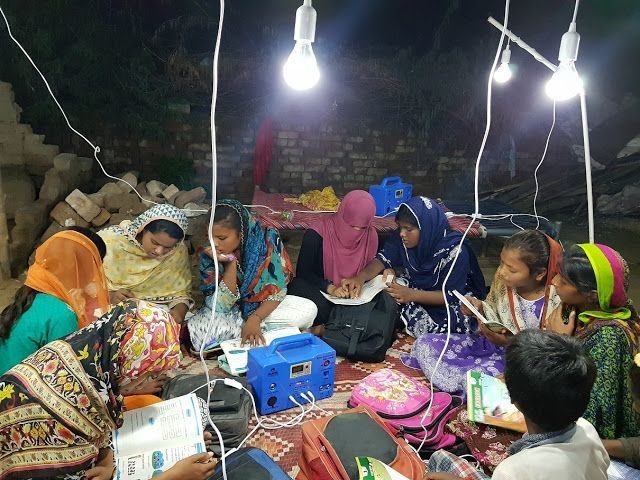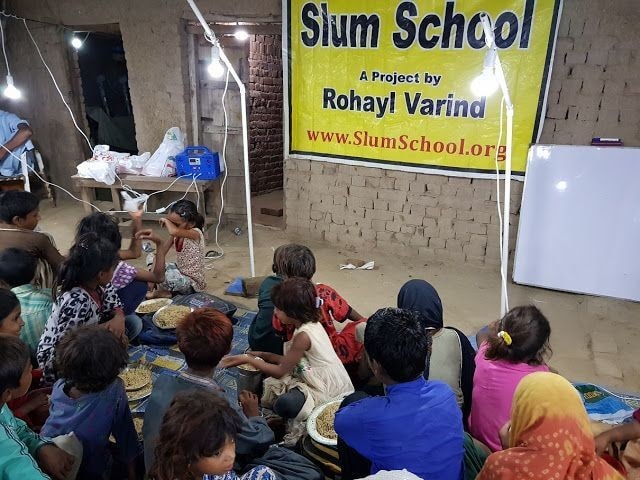This school in Pakistan uses solar power to run night classes

The school asks for equipment donations rather than cash.

Get involved with our crowdsourced digital platform to deliver impact at scale
Stay up to date:
Education
Nearly 23 million children are out of school in Pakistan. Rohayl Varind wanted to bring them back.
So, in December 2016, the 23-year old social activist and educationist set up two branches of Slum School in Faisalabad, around 323 kilometres south of capital Islamabad, offering night classes to children.
The school does not accept cash donations. Instead, it seeks food, stationary, and laptops.
One other thing on Varind’s donations list, interestingly, is solar power-related equipment. Since its inception, the school has relied on solar energy to power its lights, fans, and IT equipment. “Where my Slum School is located, there is no electricity so I considered solar energy the best alternative,” Varind said. “It’s free and easy to install and use.”
A typical school evening runs from 7pm to 9pm, with Varind teaching the kids English, Urdu, math, and science. Each week, he splits his time equally between the two branches of the school, which have a total of over 100 students. Sometimes, volunteers—his friends and other activists in Pakistan—come in to teach computers, Taekwondo, graphic design, and other subjects.
Many of the children Varind teaches are child labourers. “They start working as house helps or maids. Many boys start working at paan (betel leaf) shops or tea stalls, cafés or restaurants as waiters or cleaners,” said Varind. “One thing is common in majority of child labourers is that they work the whole day and get free at night.”








Don't miss any update on this topic
Create a free account and access your personalized content collection with our latest publications and analyses.
License and Republishing
World Economic Forum articles may be republished in accordance with the Creative Commons Attribution-NonCommercial-NoDerivatives 4.0 International Public License, and in accordance with our Terms of Use.
The views expressed in this article are those of the author alone and not the World Economic Forum.
The Agenda Weekly
A weekly update of the most important issues driving the global agenda
You can unsubscribe at any time using the link in our emails. For more details, review our privacy policy.
More on EducationSee all
Natalia Kucirkova
April 17, 2024
Morgan Camp
April 9, 2024
Scott Doughman
March 12, 2024
Genesis Elhussein and Julia Hakspiel
March 1, 2024
Jane Mann
February 28, 2024
Malvika Bhagwat
February 26, 2024






